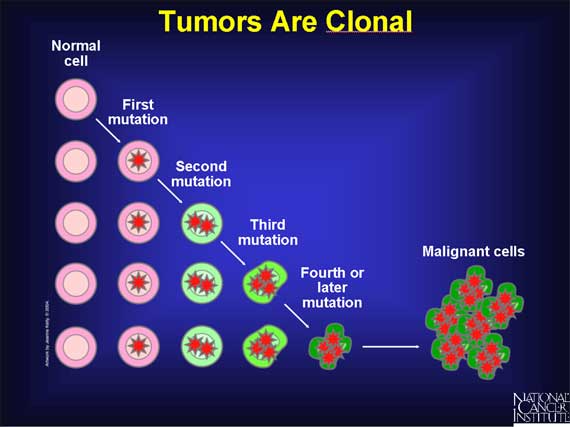|
Each cell, when it divides, generates two identical new ones. So, when a cell acquires a mutation, it passes that mutation on to its progeny during cell growth and division. Because cells with cancer-linked mutations tend to proliferate more than normal cells, cellular candidates for additional mutations grow in number. Mutations continue to accumulate and are copied to descendant cells. If one cell finally acquires enough mutations to become cancerous, subsequent cancer cells will be derived from that one single transformed cell. So all tumors are clonal, which means that they originate from a single parent cell, whether that first mutant cell was of germline or somatic origin.

< Previous | Index | Next Slide > |